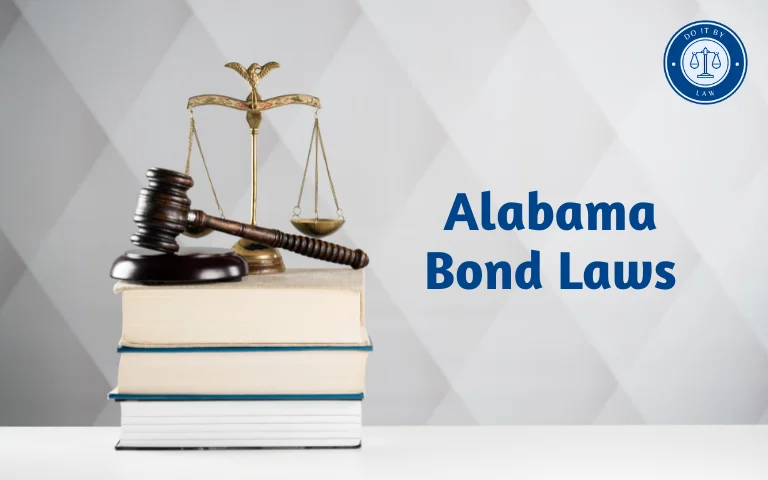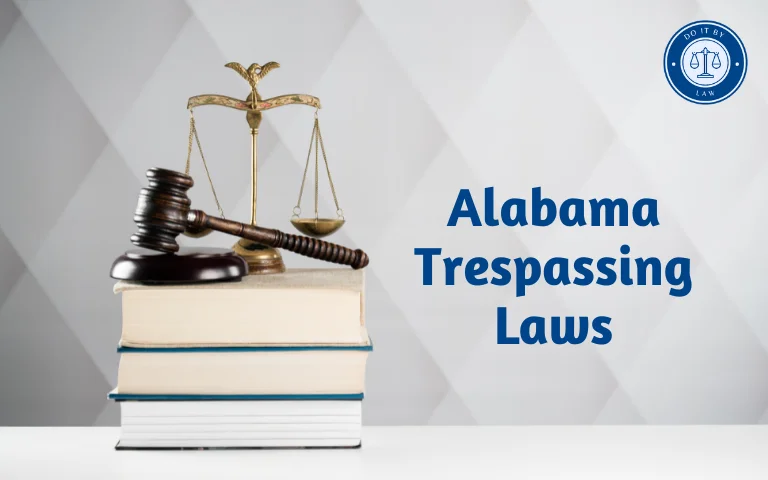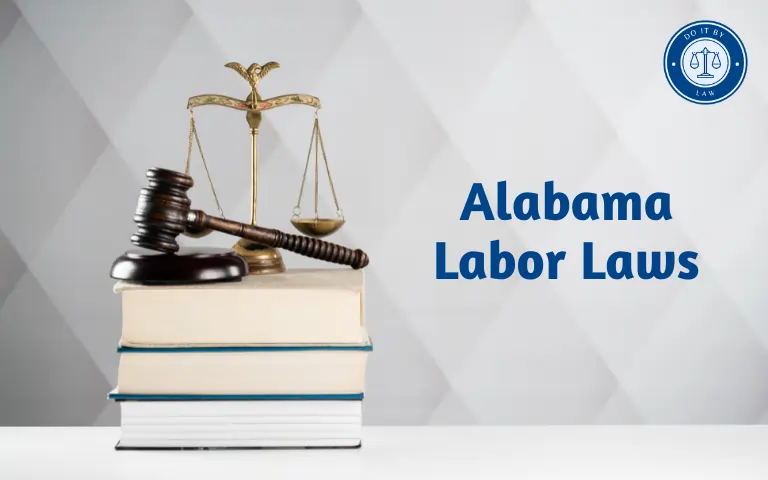Alabama Bond Laws: What You Need to Know
Bonds are a critical part of Alabama’s criminal justice system. When someone is arrested, a judge will typically set a bond amount that allows the defendant to be released until their court date. Understanding Alabama Bond Laws is important for anyone who finds themselves or a loved one needing a bond in an Alabama court.
This guide provides an overview of key Alabama’s Bond Laws, rules, and procedures. It covers topics like how bond amounts are set, different types of bonds available, bond restrictions, and what happens if you violate the terms of a bond.
When Alabama Bond Laws Were Enacted and Why They Exist
Alabama laws regarding bail and bonds have evolved through legislation, judicial rulings, and regulations. The purpose of the bond is to allow pretrial release while providing incentives for defendants to appear in court. Requiring a financial commitment aims to reduce flight risk.
The roots of Alabama’s modern bond system can be traced back to the Alabama Rules of Criminal Procedure enacted in the 1970s. These rules guided judges in setting appropriate bonds based on factors like the nature of the offense and the defendant’s community ties. Additional legislation in the 1980s and 1990s expanded judges’ discretion and created new options like property bonds.
Bond laws seek to balance the rights of accused persons who are presumed innocent with public safety and assurance that defendants will face justice. Alabama’s laws continue to be shaped by these considerations today.
Who Alabama Bond Laws Apply To
Alabama’s Bond laws apply to any individual who has been arrested and charged with a crime in the state of Alabama. This includes both residents of the state as well as non-residents who are arrested while in Alabama.
The laws apply equally regardless of the criminal charge, whether a misdemeanor or felony offense. Even minor traffic violations require a bond to be set in Alabama.
Bond laws also make no exceptions based on a defendant’s race, gender, income level, or other factors. However, these factors may influence the specific bond amount set by the judge. Those with more community ties and resources may receive lower bonds.
Key Provisions, Requirements, and Restrictions of Alabama Bond Laws
Alabama’s Bond Laws include a number of key provisions and requirements:
- Right to Bond: Alabama rules stipulate that “each defendant is entitled to release pending trial on reasonable conditions unless release will not reasonably assure the defendant’s appearance or will pose a real and present danger to others or the public at large.” Most defendants have a right to bond.
- Bond Schedule: Each jurisdiction has a bond schedule that provides typical bond amounts for common crimes. Scheduled amounts serve as guidelines but judges can raise or lower as they see fit.
- Types of Bonds: Judges can allow release on a defendant’s recognizance (no money required), an unsecured appearance bond (only pay if fails to appear), a cash bond, or through a commercial bondsman. Property and immigration bonds are also options.
- Factors Considered: Alabama law tells judges to consider family ties, employment, financial resources, character, mental condition, length of residence, and criminal history when setting bond.
- Restrictions: Conditions like random drug testing, home detention, or geographic restrictions may be imposed. Judges in some cases also have discretion to deny bond altogether if the defendant poses a risk.
- Bond Revocation: Judges can revoke bond and issue arrest warrants if a defendant violates release terms or fails to appear in court. Any money or property put up for bond may be forfeited.
Penalties for Violating Alabama Bond Laws
The consequences for violating bond terms in Alabama depend on the nature and severity of the violation but can include:
- Forfeiture of the full bond amount if the monetary bond was posted.
- Loss of property or collateral put up if property bond.
- Issuance of a bench warrant leading to arrest and detention.
- Prosecution for a felony charge of failure to appear, punishable by 1-10 years in prison.
- Prosecution for bail jumping if failure to appear is deemed willful, a felony with penalties ranging from 1-20 years imprisonment depending on criminal history.
- Additional fines are imposed at the court’s discretion.
- Revocation of all future bonds, meaning the defendant must remain jailed until trial.
- Reimbursement to the state for costs associated with locating and apprehending those who flee.
Skipping bail or breaking other bond restrictions has severe consequences in Alabama. It’s critical to follow all release conditions closely to avoid these penalties.
Recent Changes and Proposed Updates to Alabama Bond Laws
Alabama’s Bond Laws have remained largely unchanged over the past decade. However, some recent proposals and changes include:
- A failed 2021 bill that would have required judges to consider individual flight risk rather than setting high blanket bonds.
- A 2022 federal lawsuit challenging the constitutionality of Alabama’s bail system, which plaintiffs allege unfairly detains the poor. The case is pending.
- A pilot program in parts of Alabama allows defendants to be released on unsecured bonds without needing cash upfront.
- Debate on whether Alabama should follow other states in eliminating cash bail systems seen as discriminating against lower-income defendants.
While substantive reforms have stalled, it’s clear there is some momentum for updating Alabama’s bond laws in the coming years. Changes seem likely to promote individualized release decisions rather than reliance solely on monetary bonds.
Controversies and Challenges Surrounding Alabama Bond Laws
Alabama’s cash-based bond system has faced growing scrutiny and criticism recently. Key controversies include:
- Over-detention of poor defendants unable to afford even modest cash bonds.
- Allegations that judges set higher bonds for minorities compared to similar white defendants.
- Bonds are being used to improperly detain rather than simply ensure appearance.
- Commercial bail bondsmen charge excessive fees, preying on desperate defendants and families.
- Connections between some bondsmen and court/law officials lead to corruption.
- Inconsistency in bond setting across jurisdictions and individual judges.
Reform advocates argue Alabama Bond Laws system needs significant reform to address these issues of fairness, transparency, and potential discrimination. However, change has been slow with bail bondsmen among those posing political opposition.
Conclusion: Key Takeaways on Alabama Bond Laws
In summary, key takeaways on the Alabama Bond system include:
- Most defendants have a right to bond but conditions may apply.
- Bond amounts are set based on schedules and judicial discretion.
- Courts may impose restrictions like drug testing or geographic limits.
- Violating a bond can have severe penalties including revocation of all future bonds.
- Alabama’s cash bail system faces growing calls for reform from critics.
- Changes seem needed to reduce the over-detention of poor defendants and add consistency.
Understanding the basics of Alabama’s bond laws can help you navigate the process if you or a loved one is arrested. Be sure to comply fully with all release conditions to avoid serious consequences.







